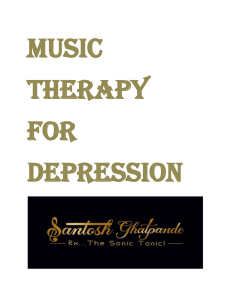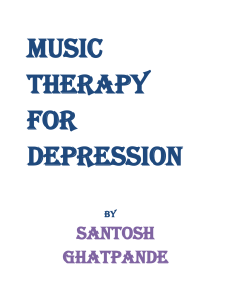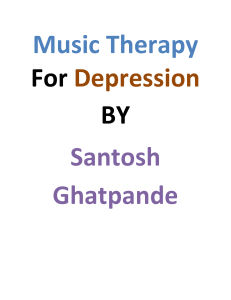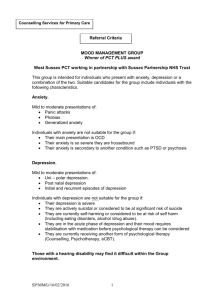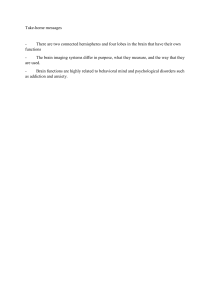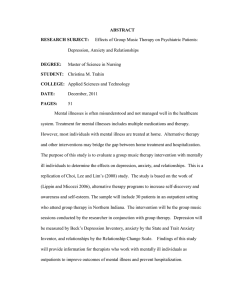Psychosocial Program for Amputees in Gaza: Anxiety & Depression
advertisement
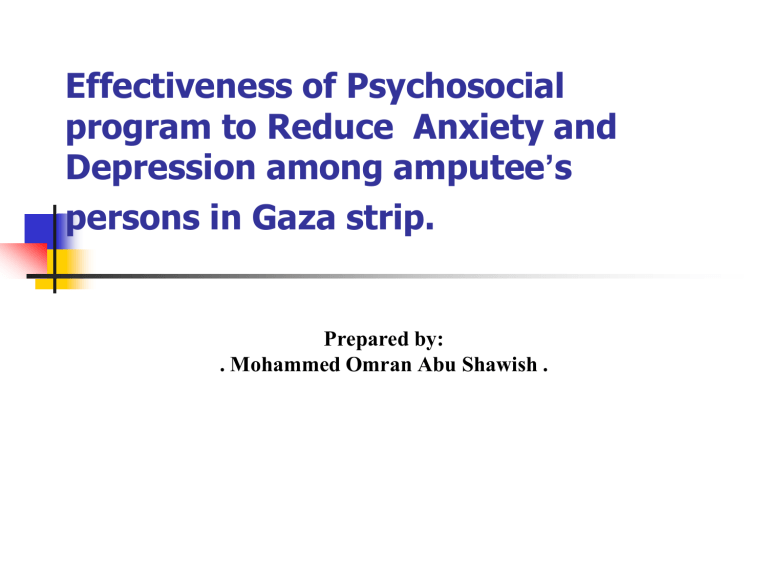
Effectiveness of Psychosocial program to Reduce Anxiety and Depression among amputee’s persons in Gaza strip. Prepared by: . Mohammed Omran Abu Shawish . Introduction The amputees persons complain of many psychological problems from amputation and physical disability. the change of self-image about body or fear from future contributing to develop mental health problems, so we provide psychosocial support for amputees persons through healing the wound program. Main goal To assess the effectiveness of Psychosocial program in reducing anxiety and depression among amputee’s persons in Gaza strip. Healing the wound protocol This protocol was designed to match the needs of this variety of these experiences. It came as a collective experience from the artificial limps and polio center clients supportive groups for one year in addition of reviewing materials from deferent references. This Protocol has been prepared in cooperation between ICRC and General Administration of Mental Health Description healing the wound program (group support): Ten group support sessions for people amputees , Each community mental health clinic(West Gaza, Alsurany. Mid-area, Khanyounis, Abusheback and Rafah clinic) has chosen a group of people amputees number of 10 people fit their health to hold support sessions. One meeting a week for two hours. Group support session as the following: First session welcoming the group Second session Share Your Story Third session Impact of the amputation (this session can be extended for 3 sessions) •General emotional issues like fears, frustration, protection need. •Loss and grief . •Anger and nervousness. Fourth session Disability Stigma. Fifth session Family issues Sixth session Next Step (Step Forward). Seventh session (Achievements). (family awareness) Five sessions aimed at the patient's family. How to help them to patient care and providing psychological and social support for the patient amputee as well as teach them coping strategies resulting from the pressures of life and bear the burden of the patients. (Home visits) Implementation of several home visits and see close up the patient's psychological and social development status and provide problems solving. (Social gathering) The final day for each of the six groups, each amputated person with someone from his family is displayed some activities, drawing, dance and songs. Methods Researcher will used a quasi-experimental method, the comparison Group Pre-test/Post-test Design to collect data from 60amputees persons, Self-report structure interview will used for filling (Hospital Anxiety and Depression Scale) (HADs), Collected data will be entered and analyzed by using Statistical Package for the Social Sciences (SPSS) version (18). After evaluating the psychological state of the amputees persons, several workshops and discussions held between the General Administration of Mental Health and ICRC, The application [Hospital Anxiety and Depression Scale, Depression subscale (HADs) were adopt to use in present study. Pretest questionnaire will be applied in the first session and before any psychological intervention and the posttest questionnaire will be applied in the last session to assess the effect of the intervention and support groups
